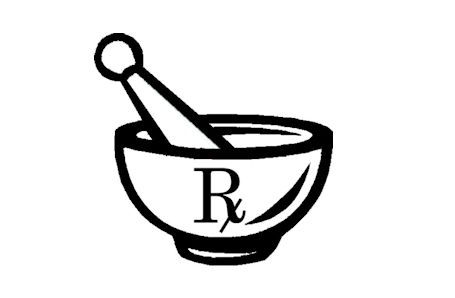Ask the Pharmacist
Q: My doctor has told me my continuing issues with constantly changing bowel movements and cramping is because I have Irritable Bowel Syndrome (IBS). She told me the key to getting better is to increase my fibre but to do so slowly. What does she mean by that?
A: IBS is a relatively-common disorder of the intestinal tract that is estimated to affect possibly as many as one in five Canadians.
It is far more common in females than males (possibly as much as a three-to-one ratio) and tends to occur somewhat out of the blue in late adolescence or early adulthood (it’s rare to be first experienced after the age of 50) although due to its on again/off again nature and non-specific symptoms, many are not diagnosed until many years or even decades later.
While there is no known definitive reason as to what brings on IBS, it often seems to first surface or flare up during times of emotional stress. Researchers have hypothesized that food intolerances, abnormal bowel motility (i.e. the rate at which food passes through your intestines where it is either absorbed or eliminated) and the impact of chronic stress (and the hormonal changes that occur because of that) could all, in part, be to blame.
Symptoms can include diarrhea and constipation (either could be dominant or some individuals cycle back and forth), bloating, gas, cramps that are worsened by eating and relieved by a bowel movement, and mucous found within the feces, as well as non-stomach-related symptoms such as headaches, depression and anxiety.
There is no single test which can reveal that you suffer from IBS. Instead, diagnosis is one of exclusion, meaning that once your doctor rules out other causes of these symptoms through assorted tests (cancer, inflammatory bowel diseases such as Crohn’s or colitis), you are deemed to have IBS.
The key to treating IBS is threefold. The first step is finding ways to manage and better cope with stress as this seems to be a trigger for many flare-ups. There is no single strategy for this, but suitable pursuits include increasing exercise, leaving more time for sleep, meditating, volunteering, and taking up activities such as yoga or tai chi.
There are medications that can be tried, but these are better left as fall-back options, to be looked at when dietary strategies fail to produce adequate responses or to be used only on an “as-needed” basis.
As for the third prong of treatment, altering one’s diet is frequently the mainstay. Adding fibre to your diet can add bulk to stool so it is not nearly so watery and lacking consistency, reduce the pressure (i.e. the urge to defecate) in your colon, promote normal bowel transit times, and relieve constipation.
However, a sudden increase in fibre has the potential to greatly increase any gas, bloating and diarrhea that you may already be dealing with. As such, the key, as mentioned in the question above, is to start out with a small amount and to gradually increase it over time.
The first decision is whether to do this through foods or by purchasing a supplement that uses the natural ingredient psyllium, such as Metamucil. If choosing the grocery route, fruits, vegetables and whole grain breads and cereals are all terrific choices.
One inexpensive way that is easily measurable, is to purchase a bran cereal that uses insoluble fibre (which is better tolerated than soluble fibre cereals like All Bran Buds) such as Post 100% Bran, Fibre One or Kelloggs All Bran. Start by adding one-quarter of a cup a half-hour before your largest meal of the day and increase this amount by one-quarter of a cup every two weeks until you reach a full cup per day.
Alternatively, psyllium (whether from Metamucil or purchased from a store) or flax seed can be used as well. Start with 1-2 tablespoonfuls (mixed into water or applesauce, smoothies, yogurt or oatmeal) and increase over a few weeks up to three times a day.
It is vital when increasing your dietary fibre that you also increase your fluid intake as the fibre needs this to exert its positive actions within the bowel.
The other dietary strategy is to try and exclude certain foods to see if your symptoms improve. On the no-brainer side, alcohol, caffeine, food and drinks that contain sorbitol or fructose (such as diet foods and beverages, fruit juices, dried fruit, and hard candies), and high-fat meals, cause plenty of gastrointestinal issues in most people and these are, not surprisingly, even worse in those with IBS. Try to avoid all of those as much as possible.
Some, but far from all, with IBS also find lactose-containing foods can worsen their symptoms. Trying a four-week abstinence from dairy products might be well worthwhile to see if it improves your symptoms. A daily diary can help you get a better idea as to how well this strategy pays off. If your symptoms do improve, you may be able to add yogurt and cheese back into your diet as these contain far less lactose than milk does.
A last and simple dietary strategy to pursue, is to slow down the pace of your eating. Eating too quickly leads to swallowed air, making it more difficult to digest foods which can flare up intestinal discomfort. Chew your food thoroughly and take at least 20 minutes to finish a meal.
For more information about this or any other health-related questions, contact the pharmacists at Gordon Pharmasave, Your Health and Wellness Destination. Also check the website at www.gordon-pharmasave.com/ and the Facebook page at www.facebook.com/GordonPharmasave/?fref=ts
 Written By
Written ByNo bio for this author.

Related Stories
No related stories.